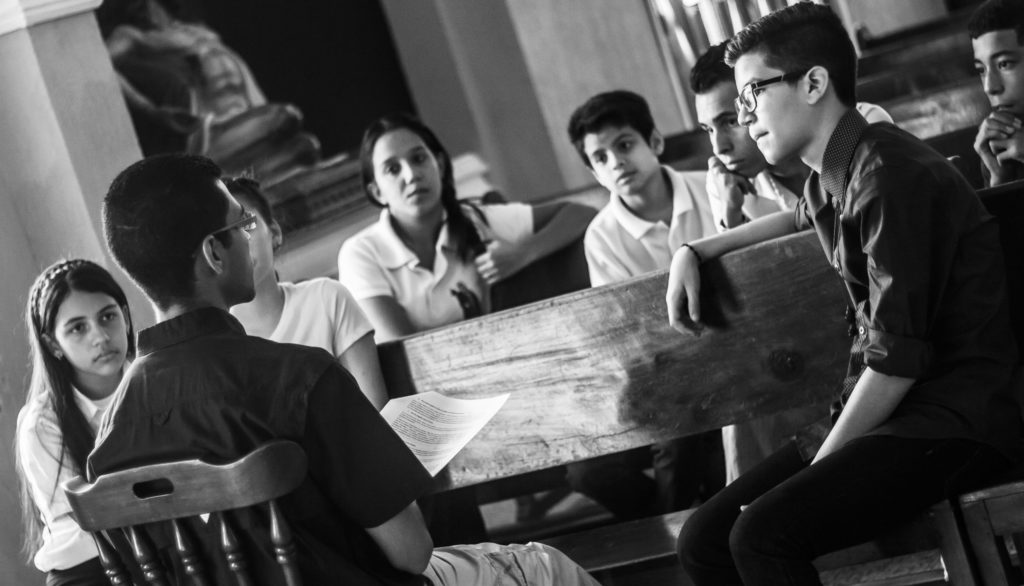A new piece is added to the general spirit of awakening in the Church "the personal enthusiasm of each baptized person". After the "motu proprio" with which Pope Francis opened the possibility of access to the ministries of lector and acolyte to women by virtue of their baptism just four months ago - modifying canon 230 of the Code of Canon Law with the letter Spiritus Domini from January 10, 2021-today institutes the "lay ministry of catechist" with Apostolic Letter Antiquum ministerium.
As can be seen from the title itself, this has been recognized in the Church since the earliest times. A path that today reaches its maturity given the urgency "for the renewed awareness of evangelization in the contemporary world," which the Holy Father had already opportunely highlighted in his "programmatic document" Evangelii gaudium in 2013.
Involving the laity
Reading the new "motu proprio" one can glimpse an array of reasons that led to the Pontiff's decision, which evidently find a solid basis for discussion and motivation in the Second Vatican Council, which in many documents had called for the direct participation of the laity "according to the various forms in which their charism can be expressed".
Obviously, it was up to Paul VI to begin to sediment this awareness in the Church of the last half century, as Pope Francis explains in his document, knowing full well that all this involvement of the laity is aimed at imprinting "greater emphasis on the missionary commitment proper to each baptized person, which in any case must be carried out in a fully secular manner without falling into any expression of clericalization" (Antiquum ministerium, 7).
Strong vocational value
Today Pope Francis imparts to this historic ministry, although never formalized until now through a Rite of Institution - to be published by the Congregation for Divine Worship and the Discipline of the Sacraments - a "strong vocational value", leaving to the Bishops the due discernment on to whom to assign this service which, in which case, becomes stable.
There is a passage in the Apostolic Letter that suggests that in the background of this decision could have been - perhaps even a little unconsciously - the recent experience of the Synod on Amazonia, in particular when it highlights, in n. 3, that multitude of men and women who "animated by a great faith and authentic witnesses of holiness" over the years have founded Churches, "and went so far as to give their lives", or who still in our days "are at the head of communities in various regions", carrying out "an irreplaceable mission in the transmission and deepening of the faith".
One can also better understand, in this way, the approach with which Pope Francis decided to come to this institution: "fidelity to the past and responsibility for the present" (n. 5), with the sole intention of reviving the mission of the Church in the world, being able to count on credible witnesses, active and available in the life of the community and adequately formed.
Custodian of the memory of God
Already a few months after taking office Pope Francis had offered a portrait of the catechist, at the Mass celebrated on the occasion of the Day of Catechists in the Year of Faith (September 29, 2013): the catechist "is the one who guards and nourishes the memory of God; he guards it in himself and knows how to awaken it in others".
An attitude that "engages the whole of life", that can only work through a vital relationship with God and neighbor: "if he is a man of charity, of love, who sees everyone as brothers and sisters; if he is a man of "hypomone"He is a man of patience, perseverance, who knows how to face difficulties, trials and failures, with serenity and hope in the Lord; if he is a kind man, capable of understanding and mercy".
Sowers of hope and joy
At the Jubilee of Catechists, in the Extraordinary Year of Mercy, on September 25, 2016, the Pope had spoken of sowers of hope and joy, with broad vision, learning to look beyond the problems, always in closeness with our neighbor: "faced with the many Lazaruses we see, we are called to be restless, to seek ways to find and help, without always delegating to others."
The importance of the first announcement
In 2018, in a video message addressed to participants at the International Conference of Catechists promoted by the Pontifical Council for Promoting the New Evangelization, the Pontiff stressed the importance of the "first announcement" made today by a catechist in a "context of religious indifference," which even if unconsciously can come "to touch the hearts and minds of many people who are waiting to encounter Christ."
This means that catechesis should not be understood as a lesson, but as "the communication of an experience and the witness of a faith that enkindles hearts" because it finds its sap in the liturgy and the sacraments.
Church Vanguard
The last time the Pope referred to catechists was on January 30, during an audience in the Clementine Hall for participants in a meeting organized by the National Catechetical Office of the Italian Bishops' Conference. Here he spoke of catechesis as "the vanguard of the Church", which carries out "the task of reading the signs of the times and of welcoming the present and future challenges", learning to listen to the questions, frailties and uncertainties of the people, always in a communitarian dimension.
And the fact that today the ministry of catechist has become something stable and formally instituted, with the accompaniment of pastors and through a formative process, goes precisely in the direction of rekindling apostolic enthusiasm in small and large communities.







